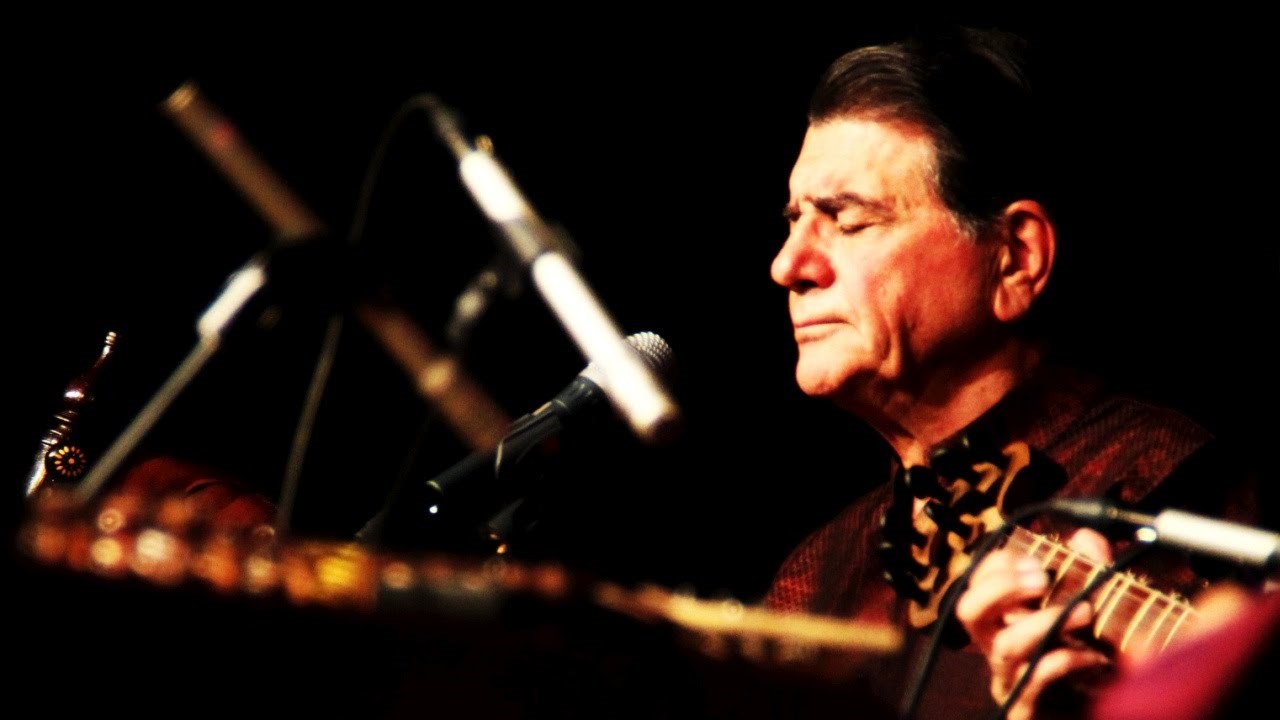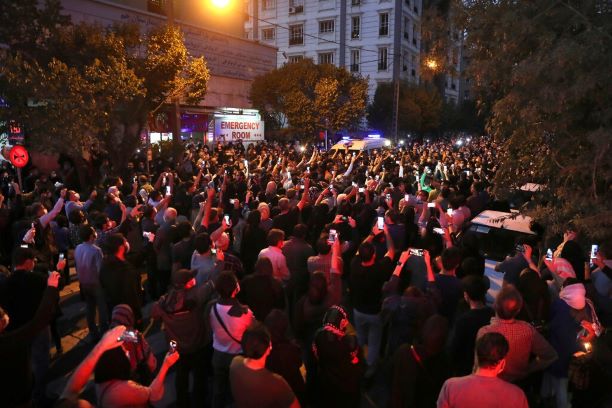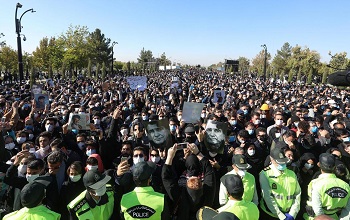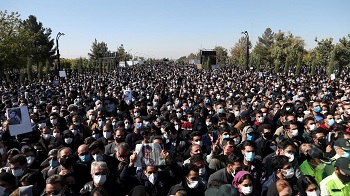
Mohammad Reza Shajarian, Iran’s most famous singer, a voice celebrated across all generations in the country, died on Thursday 8 October after a long struggle against cancer that had prevented him from performing during the latter years of his life.
Thousands of Iranians gathered outside “Jam” hospital in Tehran where the 80-year-old maestro had been undergoing lifesaving treatment. The crowds began to spontaneously sing his signature anthem of the struggle for freedom and against tyranny, “Morghe Sahar” (“Bird of Dawning”). The mourners were attacked by the regime’s security forces when they started to chant slogans against the dictatorship.

The government tried to stifle the popular outpouring that accompanied his funeral which was to take place in Tous, near Mashhad, his birthplace. Tens of thousands gathered in Tous, where Iran’s most revered 6th Century national poet, Ferdowsi, is buried. Eventually, the government postponed the funeral until the crowd dispersed. The regime had feared clashes could erupt between the crowds and the security forces with all eyes focused on the event in Tous.

In June 2009, Shajarian joined the huge nationwide protests that rocked Iran after the regime’s attempts to stealing of the vote in the country’s presidential election. The singer asked the state broadcaster, IRIB, to no longer use his songs – with the exception of his iconic “Rabanna” recording, synonymous for so many Iranians with the wait to break the fast at iftar during Ramadan. This enraged the regime, who knew it could not touch him owing to his stature in Iran and abroad, and they responded by banning the broadcast of all his songs including the Rabanna. He then released “Language of Fire and Iron”, a song calling on the security forces not to fire upon the demonstrators and to lay their weapons down. The regime banned him from performing and recording in Iran.

In 1999, UNESCO awarded him its Picasso Medal. Two of the recordings of his songs as a member of the group Masters of Persian Music were nominated for Grammys: 2002’s “Without You” and 2005’s “Faryad” (“Cry”).
Shajarian rose to prominence in on the Iranian traditional music scene in the 1960s and 1970s. However, it was his collaboration with Houshang Ebtehaj, grand poet of Iran, and Mohammad Reza Lotfi, the master musician and tar player, that made him a household name in Iran and indeed further afield. Several of these works about unity in the struggle became progressive anthems during the Iranian Revolution in 1979 and its aftermath.












 Posted in
Posted in 











